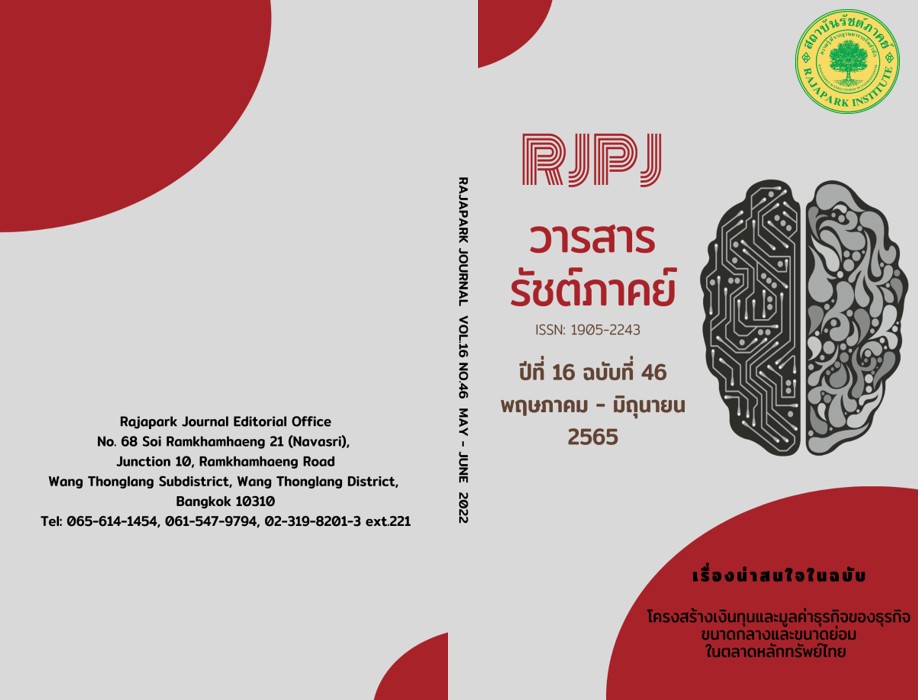The Military and Political Development in Thai Society
Main Article Content
Abstract
The purpose of this article was to study the military and political development the Thai social context from the role of the military that returned to power from the 2014 coup, in which the military has continued to be a powerful political figure today. Through the study of documents, articles and research, the results showed that conflicts over the state structure and power have failed political institutions and members of the House of Representatives derived from democratic regimes. which is caused by divisions within political parties lack of unity and the people lacked faith in the civil government This results in gaps that allow the military to become involved in politics. With the political crises and social problems that arose. This is a justification and justification for the military to come and help resolve the political crisis in Thai society. which led to a long rule of power from people to the military.
Article Details

This work is licensed under a Creative Commons Attribution-NonCommercial-NoDerivatives 4.0 International License.
Views and opinions appearing in the Journal it is the responsibility of the author of the article, and does not constitute the view and responsibility of the editorial team.
References
Bamrungsuk, S. (2015). Militocracy: Military Coup and Thai Politics. Matichon.
Bangkokbiznews. (2014, August 20). Suggests Thailand to Turn over the Crisis, push Politics out of Vicious Circle. Bangkokbiznews. https://www.bangkokbiznews.com/ politics/599735
Constitution of the Kingdom of Thailand B.E. 2560. (2017). The Government Gazette. https://cdc.parliament.go.th/draftconstitution2/ewt_dl_link. php?nid=1038&filename=index
Emerson, R. (2013). From Empire to Nation. Harvard University.
Huntington, S.P. (1957). The Soldier and The State. Harvard University.
Johnson, J.J. (1962). The Role of the Military in Underdeveloped Countries. Princeton University.
Lasswell, H.D. (1941). The Garrison State. American Journal of Sociology, 46(4), 455-468.
Matichon Information Center. (2014). Matichon Records Thailand B.E. 2557. Matichon.
Pye, L.W. (1966). Aspect of Political Development: An Analytic Study. Little Brown and Company.
Pye, L.W. (2015). Armies in the Process of Political Modernization. Princeton University.
Secretariat of the House of Representatives. (2014). Development of Politics and Governance in a Democracy. Secretariat of the House of Representatives.
Stouffer, S.A., Suchman, E.A., DeVinney, L.C., Star, S.A., & Williams, R.M. (1949). The American Soldier: Adjustment During Army Life Vol. 1 (Studies in Social Psychology in World War II). https://www.gwern.net/docs/psychology/1949-stouffer-theamericansoldier-v1-adjustmentduringarmylife.pdf
Sunsiri, P. (1990). Military and Political Security-Views from Civilian Leaders. Journal of Social Sciences, 27(1), 47-58.
Thamrongthanyawong, S. (1996). Political Attitudes of Children and Youth in Bangkok. Project Documents and Textbooks Faculty of Public Administration, National Institute of Development Administration [NIDA].
Wriggins, W.H. (1961). Impediments to Unity in New Nations: The case of Ceylon. American Political Science Review, 55(2), 313-320.


